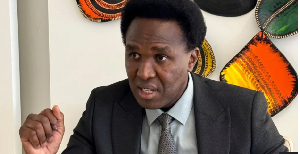Come Thursday April 30, 2009, the Ghana Statistical Service (GSS) will release the revised GDP estimate for 2008, and credible sources related to the statistical office indicate that growth for the past year exceeded government’s target of 7%.
The release will also make known the actual growth figure for 2007, the revised figure for which continues to be 6.3%.
Should growth for 2008 hit the 7% mark or above, it would peak eight years of sustained growth in the Ghanaian economy. GDP had grown by 4.2% in 2001, 4.5% in 2002 and 5.2% for 2003.
It was 5.6% in 2004, 5.9% in 2005 and to 6.4% in 2006. Despite an extensive energy crisis in 2007, growth marginally declined to 6.3% in 2007.
In an interview with this reporter in Accra last Friday, Ebo Duncan, Head of Economic Statistics at the Ghana Statistical Service explained that massive injections in the construction sector in the past year and an impressive comeback of manufacturing following the power crises could see growth rise far above the official growth figure of 6.2% announced last January.
The Statistical Service had reported a provisional GDP growth of 6.7% for 2008 in November last year based on data obtained by mid-year and extrapolations through the remaining months of 2008. The office in January 2009 then came out with the new growth rate of 6.2%, which captured data from the beginning of 2008 through September 2008.
A new quotation of 7.2% emanating from the same office in February sparked serious debate and was vehemently challenged by sections of the political divide who questioned the basis for the sharp rise over earlier growth estimates given.
The debate was however put to rest when the Deputy Government Statistician, Professor N. N. N. Nsowah Nuamah through this medium explained that figures making the rounds all the while could not be reliable until a more complete data on the economy had been gathered.
Explaining why differing growth estimates had propped up from the statistical office at various times, Professor Nsowah Nuamah stated that data on economic activity keep trickling in throughout the year and any additional data that comes may change the existing average, and he added that, “not until the final data for all components are received, any GDP figure flying around is based on incomplete data and is highly unreliable”.
The Professor of Statistics further explained that the GDP estimates for an immediate past year cannot be dependable in January of the following year. A more complete data on the economy for an immediate past year is obtain by the first half of the following year with such revised estimate expected to be very close to the actual figure which can be authenticated after a year or two.
On the outlook for the current year, Mr Ebo Duncan told this reporter that even though it is too early to predict, the onset of early rains and the commencement of the Aveyime rice project are early signs that agriculture may fare well this year.
He also noted that the continuation of all major construction projects began by the past administration would shoot up growth in the sector. He was however quick in adding that private construction may slow in 2009 as a result of a fall in remittances to households due to the financial crisis. He further indicated that mortgage institutions such as the HFC Bank have given the indication that they would hold on with the financing of new mortgages and pay more attention to recovery of earlier housing loans given.
Another sector which in his view could show up growth this year is the government sector. “If government recruits more people into the public services and if we see many more promotions, then there would be improvement in the contribution of that sector,” he stated.
To him, even though the financial crisis would adversely affect the economic performance for the year, government policy could mitigate the effect on a number of sectors and help to sustain growth.
Comparing Ghana’s growth to the rest of Africa, Mr Duncan pointed out that whilst it is commendable, it has still been below expectation in view of the massive injections the country had seen in the recent past. He acknowledged that the national accounting system needed to be rebased to reflect the structure of the Ghanaian economy today.
Citing an instance, he stressed that even though the communications sub-sector has seen massive growth today, the sector had little impact under the 1993 base period currently in use.
Business News of Tuesday, 28 April 2009
Source: financial intelligence (by charles k. amoah)

















